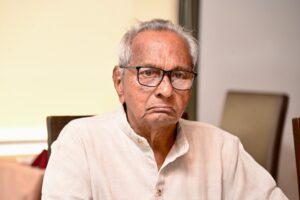Iran-IAEA standoff last major hurdle in reviving nuclear deal
TEHRAN, Iran (AA) – After more than a year of indirect talks marked by frequent interludes, Iran and the US see an agreement aimed at salvaging the 2015 nuclear deal as closer than ever.
Washington has responded to Tehran’s comments on a draft proposal by the European Union that was submitted right after the latest round of talks in Austria’s capital by top EU diplomat Josep Borrell.
Borrell termed Iran’s response “reasonable,” and reports suggest that the US’ response to Iran’s comments, which is currently being reviewed in Tehran, could help in clinching the deal.
While disagreements between Iran and the US appear to be narrowing, including on key sticking points, the standoff between Tehran and the International Atomic Energy Agency (IAEA), the UN’s nuclear watchdog, is now emerging as a roadblock.
“Give us the necessary answers, people and places so we can clarify the many things needed for clarification,” IAEA Director General Rafael Grossi said Monday.
Grossi said Iran must answer the IAEA over uranium traces found at previously “undeclared sites” as part of the Nuclear Non-Proliferation Treaty (NPT) safeguards agreement.
A day later, Sayed Mohammad Marandi, an adviser to Iran’s nuclear negotiating team, took to Twitter to declare that Iran’s nuclear program “will not be dismantled” and the IAEA probe must be dropped.
“No deal will be implemented before the IAEA Board of Directors permanently closes the false accusations file,” he wrote, referring to a resolution passed by the watchdog against Iran in June.
Mohammad Eslami, the head of Iran’s Atomic Energy Organization, refuted reports that Iran has dropped its demand to shelve the probe as the parties to the nuclear deal gear up for a major breakthrough.
“We don’t expect the director general of the agency (Grossi) to make statements that are exactly what the Zionist regime (Israel) wants,” Eslami told local media, echoing a claim made by many Iranian officials that the UN nuclear watchdog works “under the influence” of Israel.
The marathon negotiations between Iran and the P4+1 countries (Russia, China, the UK, France plus Germany) in Vienna since April last year have run parallel to the standoff between Tehran and the IAEA.
But tensions escalated after an anti-Iran resolution at the IAEA Board of Governors meeting in June, which prompted calls in Tehran for reduced cooperation with the UN watchdog.
The resolution, which followed the IAEA’s quarterly report which criticized Iran for non-compliance with the NPT safeguards agreement, urged Tehran to fully cooperate with the UN watchdog body and give IAEA inspectors access to three “undeclared sites.”
As the parties to the 2015 accord race to the finish line, the standoff between Iran and the IAEA threatens to play spoilsport, with both sides unwilling to budge from their respective positions.
“Almost 16 months after the talks began, Iran and the US, with the mediation of the European Union, are close to reviving the 2015 nuclear deal, but that doesn’t mean all gaps have been plugged,” Humayoun Zamaani, a Tehran-based strategic affairs analyst said.
Deal or no deal?
Iran has significantly ramped up its uranium enrichment activities from 3.67% stipulated under the 2015 nuclear deal to nearly 60% in response to the US withdrawal from the deal in 2018.
This has raised concerns in the West about possible military dimensions (PMD) of Iran’s nuclear program, putting Tehran and the UN nuclear agency on a collision course.
On the other hand, Israeli Prime Minister Yair Lapid has expressed concern that the US and other parties are going to offer more concessions to Iran to reach a deal in Vienna.
Abolfazl Amouei, a senior lawmaker and member of the Iranian parliament’s foreign policy and national security committee said that Iran is seeking a “beneficial and sustainable agreement” that will be “challenged” if issues between Iran and the IAEA are not resolved.
“Iran insists that these remaining issues (between the two sides) be resolved before the implementation of the agreement,” he asserted.







